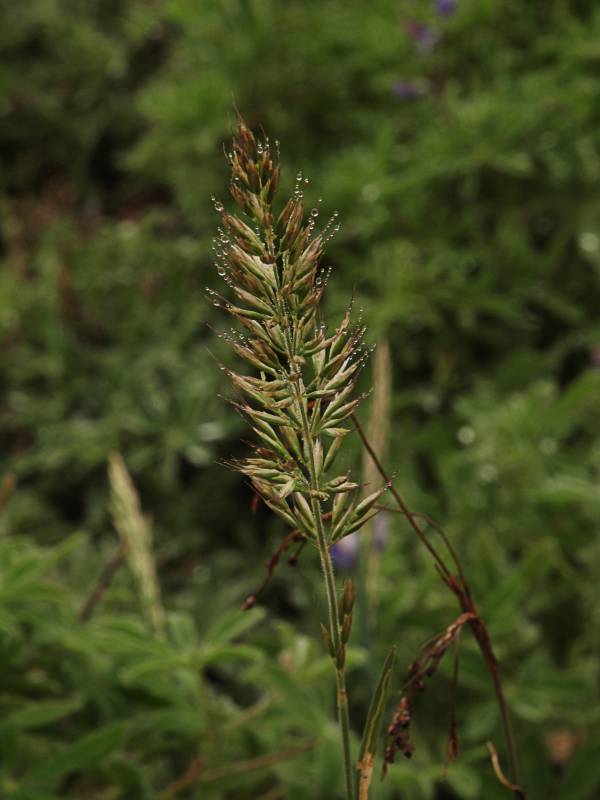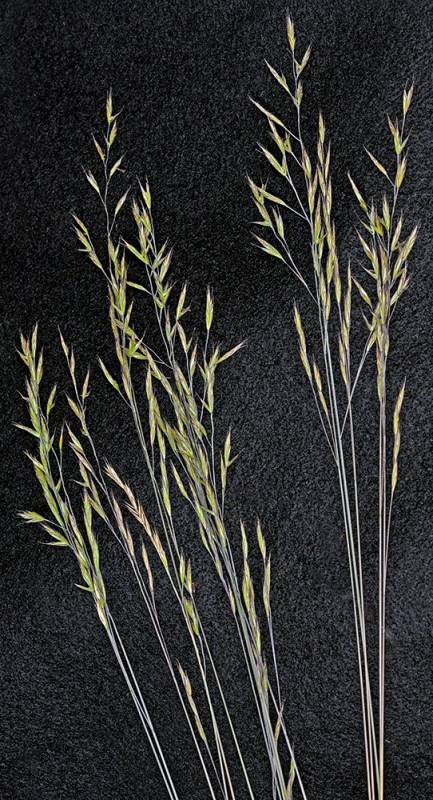Festuca brachyphylla
Festuca idahoensis
alpine fescue
bluebunch fescue, Idaho fescue
Sheaths open, usually glabrous;
ligules 0.3-0.6 mm. long, highest on the sides;
blades mostly basal, filiform, folded-involute, up to 10 cm. long.
Inflorescence a narrow panicle 7-15 cm. long, the branches erect to ascending;
spikelets 5- to 7-flowered; first glume narrowly lanceolate, about 3.5 mm. long, 1-nerved; second glume oblong-lanceolate, about 5 mm. long, 3-nerved;
lemmas rounded, about 6.5 mm. long, with a stout awn 2-5 mm. long;
palea equal to the lemma.
Festuca brachyphylla
Festuca idahoensis
Occurring on both sides of the Cascades crest in Washington; Alaska to California, east to the Rocky Mountains, northern Great Plains, and northeastern North America; circumboreal.
Occurring chiefly east of the Cascades crest in Washington; British Columbia to California, east to the Rocky Mountains and northern Great Plains.
- Local floras:
BC,
OR,
WA
- Local Web sites:
Flora NW,
PNW Herbaria
WildflowerSearch
iNaturalist (observations)
USDA Plants Database
- LBJ Wildflower Center
- SEINet
- Plants of the World Online
- Encyclopedia of Life
- Wikipedia
- Google Image Search
- Local floras:
BC,
CA,
OR,
WA
- Local Web sites:
CalFlora,
CalPhotos,
Flora NW,
PNW Herbaria
WildflowerSearch
iNaturalist (observations)
USDA Plants Database
- LBJ Wildflower Center
- SEINet
- Plants of the World Online
- Encyclopedia of Life
- Wikipedia
- Google Image Search



